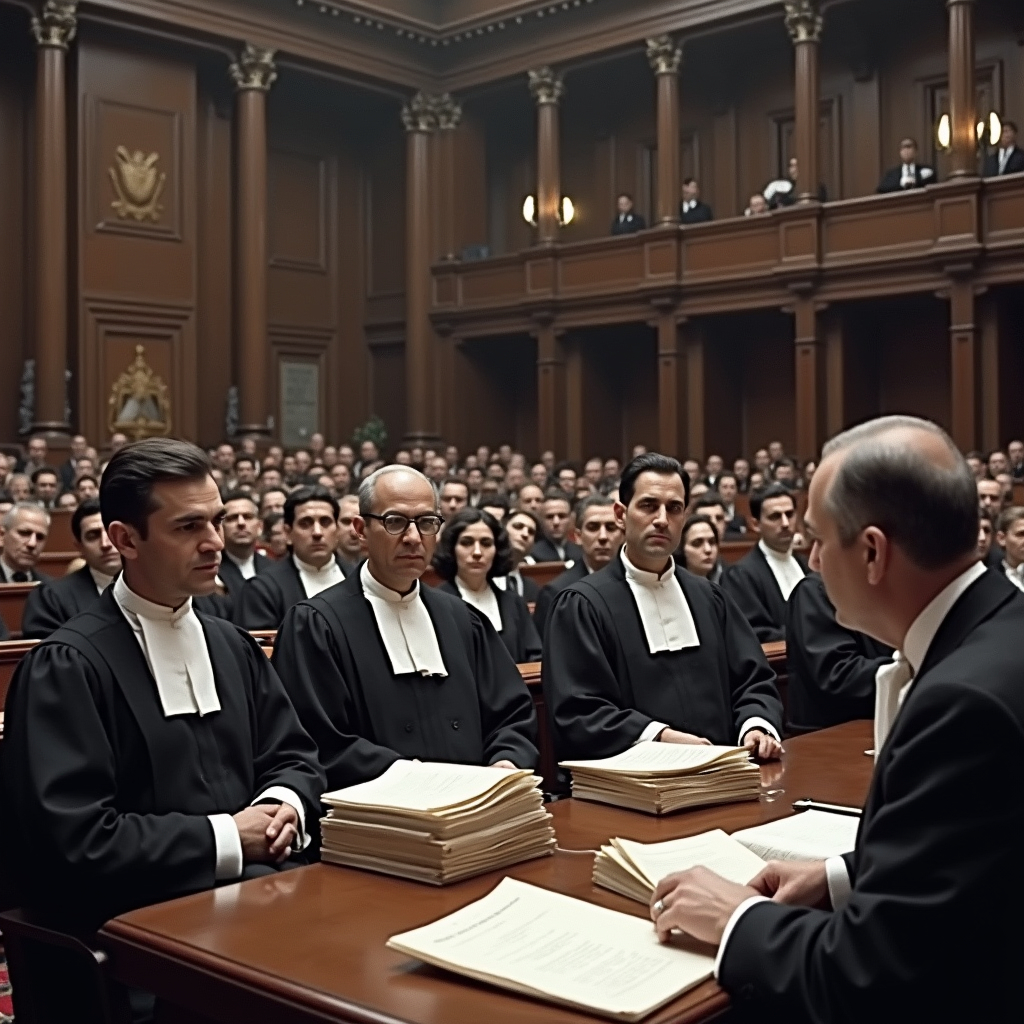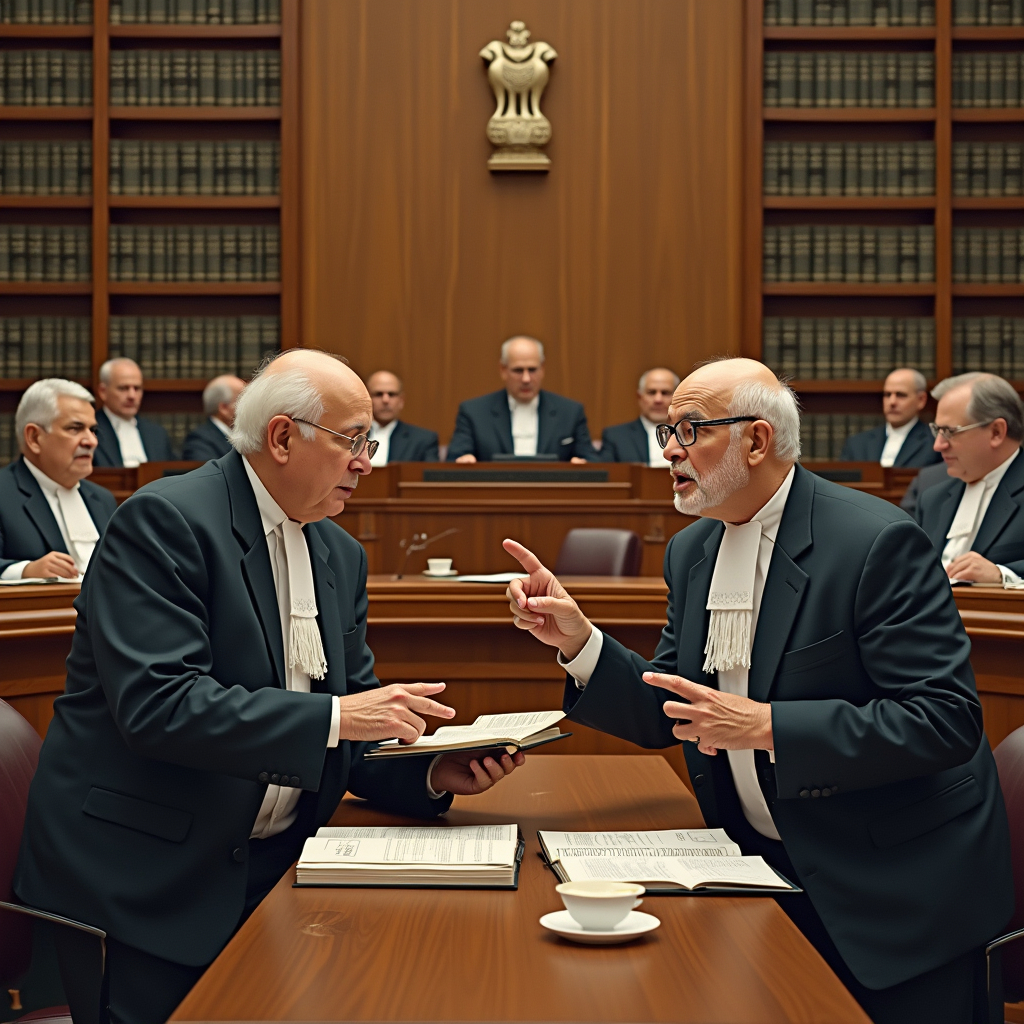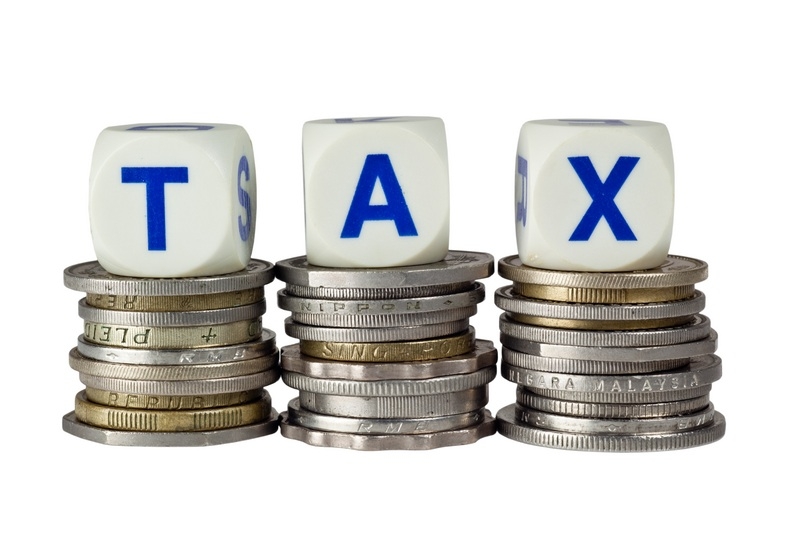This article is written by Nidhi Bajaj, of Guru Nanak Dev University. In this article, the author has discussed some of the important issues raised in the judgment of Bengal Immunity Co. Ltd. v. The State of Bihar.
Table of Contents
Introduction
| Case Name | Bengal Immunity Co. Ltd. v. the State of Bihar |
| Citation | AIR 1955 SC 661 |
| Court | Hon’ble Supreme Court of India |
| Date of judgment | 06/09/1955 |
| Parties | Petitioner: Bengal Immunity Co. Ltd. Respondent: State of Bihar and others |
| Bench | Justice S.R. Das, Justice V. Bose, Justice Bhagwati, Justice Jagannath Das, Justice T.L.V. Ayyar, Justice B.P. Sinha and Justice S.J. Imam |
Facts of the case
- The appellant is a company engaged in manufacturing and selling of biological products and medicines. The company is having its registered head office at Calcutta and its laboratory and factory situated in West Bengal. It is registered as a dealer under the Bengal Finance (Sales Tax) Act, 1941.
- The products of the company are sold throughout the Union of India and abroad as well. The goods are dispatched from Calcutta by rail, steamer or air against orders accepted by the appellant company in Calcutta.
- The appellant company does not have any office, godown, laboratory or any agent or manager in Bihar. However, on the 24th October 1951, the appellant company received a letter from the Assistant Superintendent of Commercial Taxes, Bihar wherein the company was called upon to take necessary steps to get itself registered under the Bihar Sales Tax Act, 1947 and to deposit Bihar Sales Tax dues as well.
- Then, on 18th December 1951, a notice was issued to the appellant company by the Superintendent, Commercial Taxes, Central Circle Bihar, Patna issued a notice under Section 13(5) of the Bihar Sales Tax Act, 1947 read with Rule 28. It was mentioned in the notice that the appellant company is to register itself under the Bihar Sales Tax Act and submit returns showing its turnover for a certain period as mentioned therein. It was the view of the authorities that the appellant company was liable to pay tax but was willfully avoiding its obligation to register itself under the Act.
- The appellant company denied its liability to pay tax on the following grounds-
- That it was not resident in Bihar
- That is carried on no business in Bihar and none of its sales took place in Bihar and
- That it did not collect any sales tax from any person of that State.
- It was contended by the Bihar Sales Tax authorities that under Section 33 of the aforesaid Act, which was substantially based on Article 286 of the Constitution, provided for all sales in West Bengal or any other State under which the goods had been delivered in the State of Bihar as a direct result of the sale for consumption in that State were liable to Bihar Sales Tax.
- On 29 May 1952, the appellant company was called upon to comply with the notice by 14 June 1952, and it was mentioned that in default of compliance, the Assistant Superintendent of Sales Tax, Bihar would proceed to assess the best of his judgment.
- By a letter dated 7th June 1952, the appellant company characterized the notice under Section 13 (5) as ultra vires, illegal and called upon the Superintendent to cancel the same.
- On 10th June 1952, the appellant company presented a petition under Article 226 before the Patna High Court praying for an order quashing the proceedings issued by the opposite parties with the object of levying and realizing a tax which is not lawfully leviable on the petitioners and for other ancillary reliefs.
- The respondents did not file any affidavits controverting any facts mentioned in the petition of the appellant company.
- A preliminary objection was raised by the respondents before the High Court regarding the maintainability of the petition.
Decision of the High Court
The High Court disposed of the preliminary objection in favour of the respondents and held that-
- In the circumstances of the case no facts have been investigated, no liability has been determined and no order of assessment has been made. The case does not involve any question of exercise of jurisdiction not vested by law or malafide exercise of jurisdiction or acting more than jurisdiction on the part of the Sales Tax Officer. Under the Act, the Sales Tax Officer has the jurisdiction to investigate the question of liability of a dealer to sales tax and hence the officer was well within his jurisdiction in issuing the notice.
- The court pointed out that if an order of liability to pay tax is erroneously made against the company, then the company has the remedy to file an appeal under Sections 24 and 25 of the Act. The High Court adopted the view that such a decision, however erroneous, is well within the ambit of jurisdiction of such officer and the High Court cannot interfere in the same by a writ of prohibition or certiorari.
- It was also held that-

- The phrase “sale or purchase in the course of inter-State trade or commerce” in Article 286(2) does not include the particular class of sales or purchases provided in the explanation to Article 286(1). Therefore, the Bihar Sales Tax Act is not violative of Article 286.
- The Bihar Sales Tax Act is not invalid under Article 254 and does not contravene Article 304.
Hence, the petition was dismissed as being not maintainable. However, the High Court issued a certificate, under Article 132(1) of the Constitution certifying that the case involved a substantial question of law as to the interpretation of the Constitution.
- The company came in appeal before the Hon’ble Supreme Court.
Due to the importance of issues involved in the case, the States of Madras, Uttar Pradesh, Madhya Pradesh, West Bengal, Punjab, Orissa, Pepsu, Mysore, Travancore-Cochin and Rajasthan applied for leave to intervene and were granted the same. Tata Iron and Steel Co. Ltd. and one Mr. Kuriakose also applied for similar leave which was granted as well. State of West Bengal, Tata Iron and Steel Co. Ltd. and Mr Kuriakose supported the appellant company, while the rest of the intervenors opposed the appeal.
Issues raised
Some of the important legal issues raised in the case are as follows:
- Whether the tax threatened to be levied on the sales made by the appellant company and implemented by delivery in the circumstances and manner mentioned in its petition is leviable by the State of Bihar?
- Whether the application for a writ of prohibition is maintainable?
- Whether the explanation to Article 286(1)(a) confers authority on the State Legislatures to impose a tax on sales falling within its purview?
- Whether the Supreme Court can review/re-examine its earlier decision?
- Whether the Bihar Sales Tax Act, 1947 is ultra-vires and void in its entirety or it is only bad in so far as it seeks to impose a sales tax on out-of-State sellers in respect of inter-state sales or purchases?
Contentions of the parties
Submissions made by the appellants
- It was submitted on the behalf of the appellants that the Bihar Sales Tax Act is ultra-vires, wholly illegal and in contravention of Article 286 of the Constitution to the extent that it proposes to tax a non-resident dealer with regard to an inter-State sale or purchase of goods.
- It was urged that Article 286 puts a restriction on the State legislature and the explanation appended to the said section only explains clause 1(a) and did not confer any power on the state legislature to impose the tax. (It is pertinent to note that the explanation has been omitted by the Constitution(Sixth) Amendment Act, 1956).
- Article 286(2) establishes the supremacy of Parliament with regard to inter-state trade and commerce by restricting the state legislature to tax such inter-state trade. It is only when such an embargo is lifted by appropriate legislation made by the Parliament that the State Legislature could levy any tax on inter-state trade.
Submissions made by the respondent
- It was argued on the behalf of respondents that the application praying for a writ filed by the appellant company was premature and was liable to be dismissed as no order of assessment has in fact been made. The appellant should not have rushed to the court at this stage and moreover, it was not entitled to come to court under Article 226 as it has the alternative and adequate remedy of appeal and revision under the Act.
- Respondents relied on the case of The State of Bombay v. The United Motors (India) Ltd (1953) to support the contention that all the States are realizing sales tax in respect of sales or purchases of goods where the goods are delivered for consumption within their respective boundaries. It was also submitted that a reversal of the said decision by this court will upset the economy and render them liable to refund monies already collected by them as taxes.
- Following reasons were given by the Government of Bihar in support of their contention that Article 286(2) is not applicable to the transactions of sale or purchase covered by Article 286(1)(a) and the explanation thereto-

- Sales falling under Article 286(1)(a) form a special class of inter-State sales which are not affected by the general provisions of Article 286(2);
- If Article 286(2) is made applicable to the sales covered by Article 286(1)(a) and the Explanation thereto, it would amount to discriminating against the local trade in favour of inter-State trade;
- The object of Article 286 is merely to eliminate multiple taxations and when such an object is already achieved by Article 286(1)(a) in respect of the sales falling within it, then it need not apply to Article 286(2) as well.
- The Constitution has divided inter-State sales into two categories. In the case of one class, it lays down as to which State will tax and under what conditions and in the case of the other class, the Constitution has banned the imposition of tax in general terms.
- By legal fiction, the inter-State sale is converted into an intrastate sale.
Decision of the Hon’ble Supreme Court
The Supreme Court allowed the appeal. It was held that until Parliament by law provides otherwise, the State of Bihar shall abstain from imposing sales tax on out of state dealers in respect of sales or purchases that have taken place in the course of inter-State trade or commerce even though the goods have been delivered as a direct result of such sales or purchases for consumption in Bihar.
The Court disagreed with the decision of the High Court
The Supreme Court said that if the contention of the appellant that the Bihar Sales Tax Act which authorizes levy and collection of sales tax is ultra-vires the Constitution is well-founded, then the remedy by way of the writ shall be available to the aggrieved party. The Court rejected the contention of respondents that the appellants should not have come to Court at the stage of issuing of notice and held that the issuing of notice and calling upon the appellant company to register itself as a dealer, submit returns etc. constitutes hardship and harassment to the appellant which, if the Act is void and ultra-vires constitutes an infringement of right entitling the company to immediately come to the court for redress.
Court also rejected the contention of respondents regarding the non-maintainability of the appellant’s application on grounds of the availability of an alternative remedy under the Act. The court held that if the Act itself is found to be void or ultra-vires, then the remedy cannot be said to be adequate and is in fact useless.
Thus, while rejecting the order of the High Court that the application under Article 226 was misconceived or not maintainable, the Supreme Court court proceeded to consider the said question on merits.
Re-examining its own decision
In this case, the Court decided the question as to whether it could re-examine its own decision given in an earlier case.
The judgment with regard to which this question was The State of Bombay v. The United Motors (India) Ltd. (1953). In that case, it was held that Article 286(1)(a), read with the explanation thereto and construed in the light of Articles 301 and 304, prohibited the levy of tax on inter-state sales or purchases by all States except the State in which the goods were actually delivered for the purpose of consumption (hereinafter called delivery state). It was further held that Article 286(2) did not affect the power of the delivery State to impose a tax on the sales or purchases of the kind mentioned in the Explanation and that the Explanation had the effect of converting such inter-State transactions into intrastate transactions and thereby excluded them from the purview of Article 268(2).
The Court held that there is nothing in our Constitution that prevents this court from departing from a previous decision when the court is convinced that such decision is erroneous and has a baneful effect on the general interests of the public. The Court held that Article 141 which lays down that the law declared by this Court shall be binding on all courts within the territory of India refers to Courts other than the Supreme Court.
The Court gave various convincing reasons based on which it decided to review its earlier decision given in the United Motors case, some of which are given below—

- Justice Bhagwati, who was one of the judges who gave the majority judgment in the aforesaid case was now of the view that the majority decision was erroneous and agrees with the minority view given in that case.
- If the decision is followed, it would perpetuate an error and tax burden on people which in court’s opinion is wholly unauthorized.
- If the said decision is erroneous, it is the duty of the court to correct the same and to protect the public against illegal tax burdens.
- There is some vagueness in the said judgment as the actual decision suggests that it is only the buyers falling within the explanation who are liable to be taxed by the delivery State and the out-of-State sellers are not considered liable to be taxed on the sales. Hence, there are some major contradictions between the actual decision and the rest of the majority judgment.
Thus, the Court held that it could very well re-examine its earlier decision if it is plainly erroneous. However, such power of review is to be exercised with due care and caution only for advancing the well being of the general public. The court should not lightly dissent from its previous pronouncement. The court also said that the doctrine of stare decisis is not a rigid, inflexible rule of law and cannot become an excuse to perpetuate an error to the detriment of the general public.
The Court rejected the argument of respondents that doing so would upset the economy and would require states to refund taxes already collected. It was observed that if those monies are refundable in law, then the states cannot complain any more than a private individual placed in similar circumstances. And if the State economy is upset, the States are free to appeal to the Parliament for the enactment of a suitable law under Article 286(2).
Construction of Article 286 : applying the mischief rule
- The Court held that the rule of mischief as propounded in the famous Heydon’s Case(1584) is applicable to the construction of Article 286. In that case, it was held that the following four factors are to be considered for arriving at the true construction of a statute-
- “What was the common law before the making of the Act;
- What was the mischief and defect for which the common law did not provide;
- What remedy the Parliament has resolved and appointed to cure the disease of the Commonwealth.,
- The true reason of the remedy; and
then the Court has to adopt such construction which shall suppress the mischief, and advance the remedy…”.
- The Court thus proceeded to analyze the position that existed before the enactment of the Constitution, what was the mischief that the old law did not provide and what remedy was provided by the Constitution to cure that mischief.
The Court referred to the judgment of United Motors to explain the position of levy of sales tax that prevailed in the country. In that case, it was said that while exercising the power conferred under the Government of India Act,1935, the Provincial Legislatures enacted Sales Tax laws to impose sales tax based on the principle of territorial nexus i.e. they picked up one of the ingredients constituting a sale(for example, agreement to sell, delivery of goods etc.) and made them a basis of their sales tax legislation.
The aforesaid situation led to multiple taxations of the same transaction by provinces and the cumulative burden on the consuming public. It was to cure this mischief of multiple taxations and also preserve the free flow of inter-State trade or commerce in the Union of India that the Constitution makers adopted Article 286 in the Constitution.
Marginal notes as an aid to construction
The Court held that the marginal note appended to Article 286 i.e. “Restrictions as to the imposition of tax on the sale or purchase of goods” being a part of the Constitution as passed by the Constituent assembly prima facie furnishes a clue as to the meaning and purpose of the Article.
Thus, the Court held that the marginal note, as well as the language of the article, makes it clear that the object of the said article is to impose restriction on the legislative powers of the States with respect to the imposition of tax on sales and purchases of goods.
Hence, the majority decision given in United Motors judgment was set aside.
Ban under Article 286(2) applies to transactions of sale or purchase under Article 286(1)(a) and the Explanation thereto.

While rejecting the contentions put forward by the Government of Bihar, the court held that the ban under Article 286(2) applies to the transactions of sale or purchase under Article 286(1)(a) and the explanation thereto. The Court also said that—
- The transactions of sale covered by Article 286(1) (a) and the explanation thereto and the transactions of sale covered by Article 286(2) do not fall under the same category. The Court observed that in the former provision, the transaction is looked at from the point of view of its location, whereas in the latter the transaction is looked at from the point of view of its being in the course of inter-State trade. Hence, the provisions do not deal with the same subject matters and therefore the question of construing them harmoniously does not arise.
- The purpose of enacting Article 286 was manifold and not merely to avoid multiple taxations.
- The legal fiction created by the Explanation to Article 286(1)(a) is only for the purpose of sub-clause (a), i.e., for determining whether a particular sale was an outside sale or one which could be deemed to have taken place inside the State. The said legal fiction cannot be extended to convert interstate sales into intra-state sales.
Explanation is a part of section
It was also urged before the Court that the Explanation to Article 286(1) (a) should be read as an exception or a proviso to Article 286(2). While rejecting this argument, the Court held that the explanation is a part of the Section to which it is appended and the whole lot should be read together to know the true meaning of the provision.
Bihar Sales Tax Act wholly void or not
After declaring that the State cannot impose sales tax on inter-state sale and purchase as aforesaid, the Court proceeded to analyse the question as to whether the Bihar Sales Tax Act 1947 is wholly void or is void only to the extent that it provides for taxing of inter-state sales or purchases.
The court observed that the answer to this question shall depend on whether the objectionable parts of the Act are severable from the rest of its provisions. For doing so, the Court referred to some of the provisions of the Act including-
- Long Title of the Act: An act to provide for the levy of tax in sales of goods in Bihar.
- Preamble: It is necessary to make an addition to the revenues of Bihar and for that purpose to impose a tax on the sale of goods in Bihar.
- Definition of ‘dealer’ under Section 2(c): Any person who sells or supplies any goods in Bihar whether for commission, remuneration, or otherwise and includes any firm or a Hindu joint family and any society, club or association which sells or supplies goods to its members.
Apart from the above provisions, the Court analysed Section 4(the charging section) and Section 2(g) of the Act defining ‘sale’, the latter of which is reproduced below.
“sale” means,, with all its grammatical variations and cognate expressions, any transfer of property in goods for cash or deferred payment or other valuable consideration, including a transfer of property in goods involved in the execution of contract but does not include a mortgage, hypothecation, charge or pledge:
Provided that a transfer of goods on hire purchase or other instalment system of payment shall, notwithstanding the fact that the seller retains a title to any goods as security for payment of the price, be deemed to be a sale: Provided further that the sale of goods in respect of a forward contract, whether goods under such contract are actually delivered or not, shall be deemed to have taken place on the date originally agreed upon for delivery- Explanation.-The sale of any goods actually delivered in Bihar as a direct result of such sale for the purpose of consumption in Bihar shall be deemed for the purpose of this Act to have taken place in Bihar., notwithstanding the fact that under the general law relating to sale of goods, the property in the goods has, by reason of such sale, passed in another State”.
The Court noted that the explanation to the above provision was substantially a reproduction of the explanation to Article 286(1)(a).
In the definition of sale, the words ‘in Bihar’ were deleted by amendment and a new Section was inserted by the Adaptation of Laws (Third Amendment) Order, 1951 which substantially reproduced the provisions of Article 286(1) and (2). The court observed that even though the charging section read with the definition of “dealer” and “sale” may be wide enough to cover inter-State sales, the new Section 33 makes all those provisions subject to its provisions which are nothing but a reproduction of the corresponding provisions of Article 286.

Thus, in view of the interpretation as put upon Article 286 by the Court(as stated in above points), the Court held that the Act insofar as it purports to tax inter-state sales and purchases is ultra-vires. However, the court concluded that the Act is not wholly ultra-vires as it is feasible to separate taxes levied on authorised subjects from those levied on exempted subjects and to exclude the latter in the assessment of tax.
Conclusion
The Bengal Immunity Co. case is a landmark judgment wherein the rule of mischief or purposive construction was applied by the Hon’ble Supreme Court. The case also highlights the importance of marginal notes and explanation appended to a statutory provision in construing the true meaning and import of that provision. However, it must be noted only those marginal notes should be relied upon as an aid to construction that is inserted by the Legislature/Constituent Assembly and is thus a part of the enactment.
References
Students of Lawsikho courses regularly produce writing assignments and work on practical exercises as a part of their coursework and develop themselves in real-life practical skills.
LawSikho has created a telegram group for exchanging legal knowledge, referrals, and various opportunities. You can click on this link and join:
Follow us on Instagram and subscribe to our YouTube channel for more amazing legal content.
 Serato DJ Crack 2025Serato DJ PRO Crack
Serato DJ Crack 2025Serato DJ PRO Crack











 Allow notifications
Allow notifications


